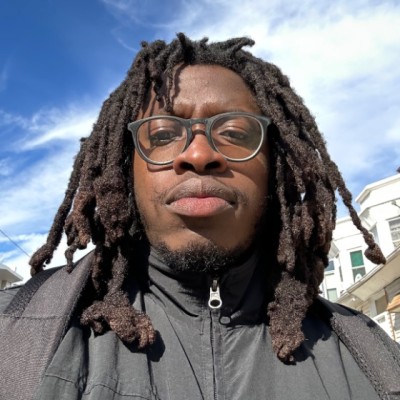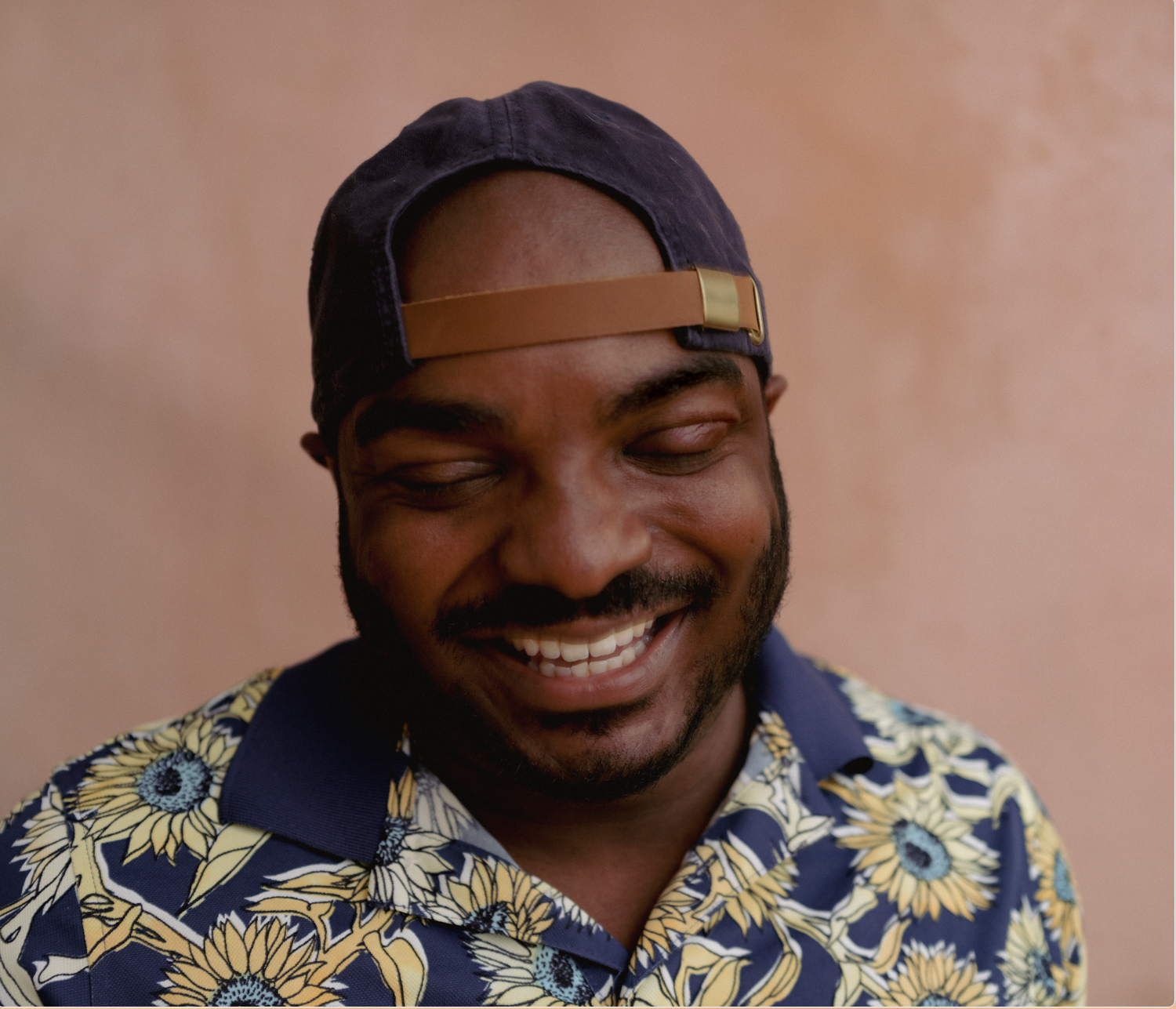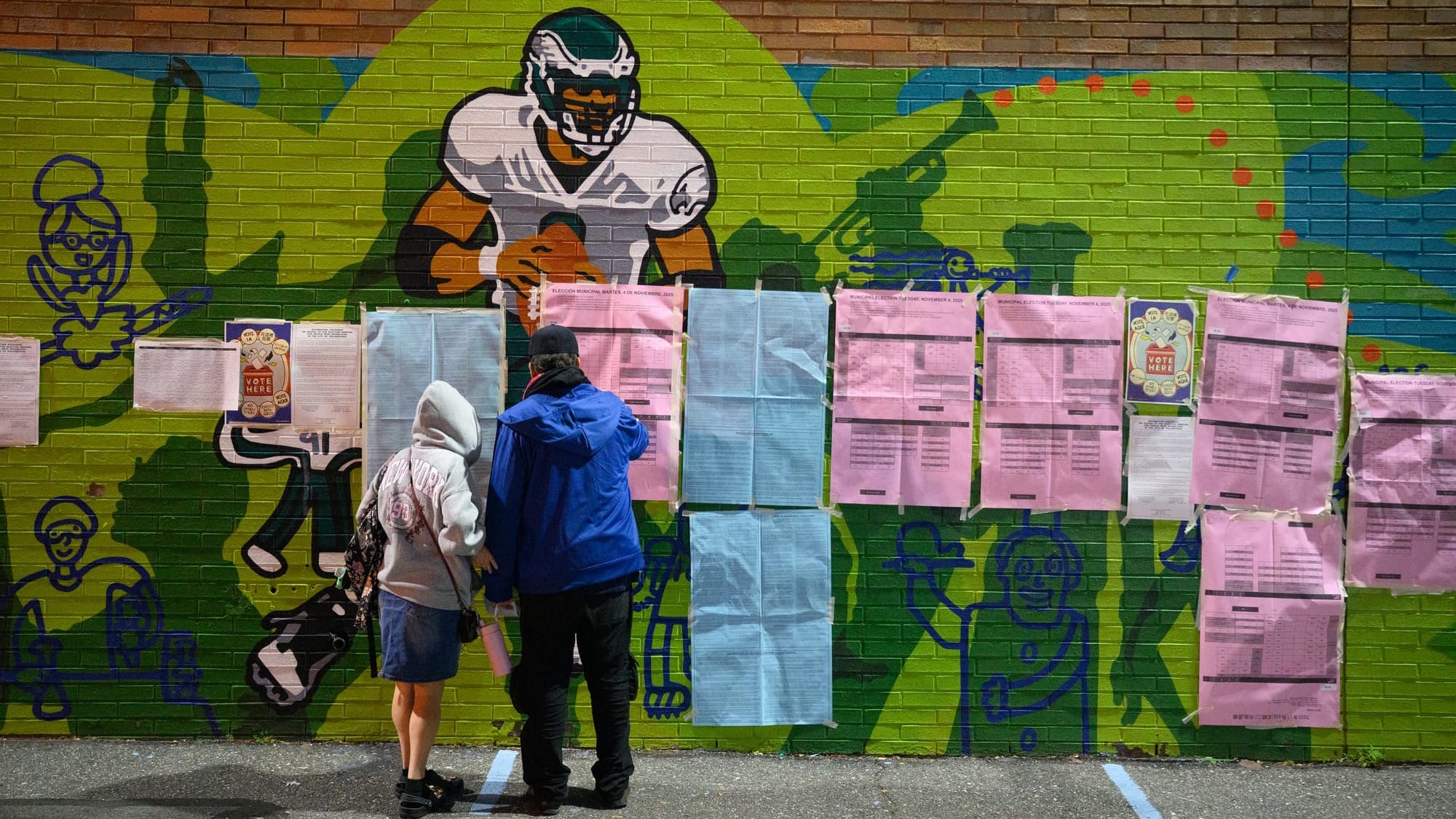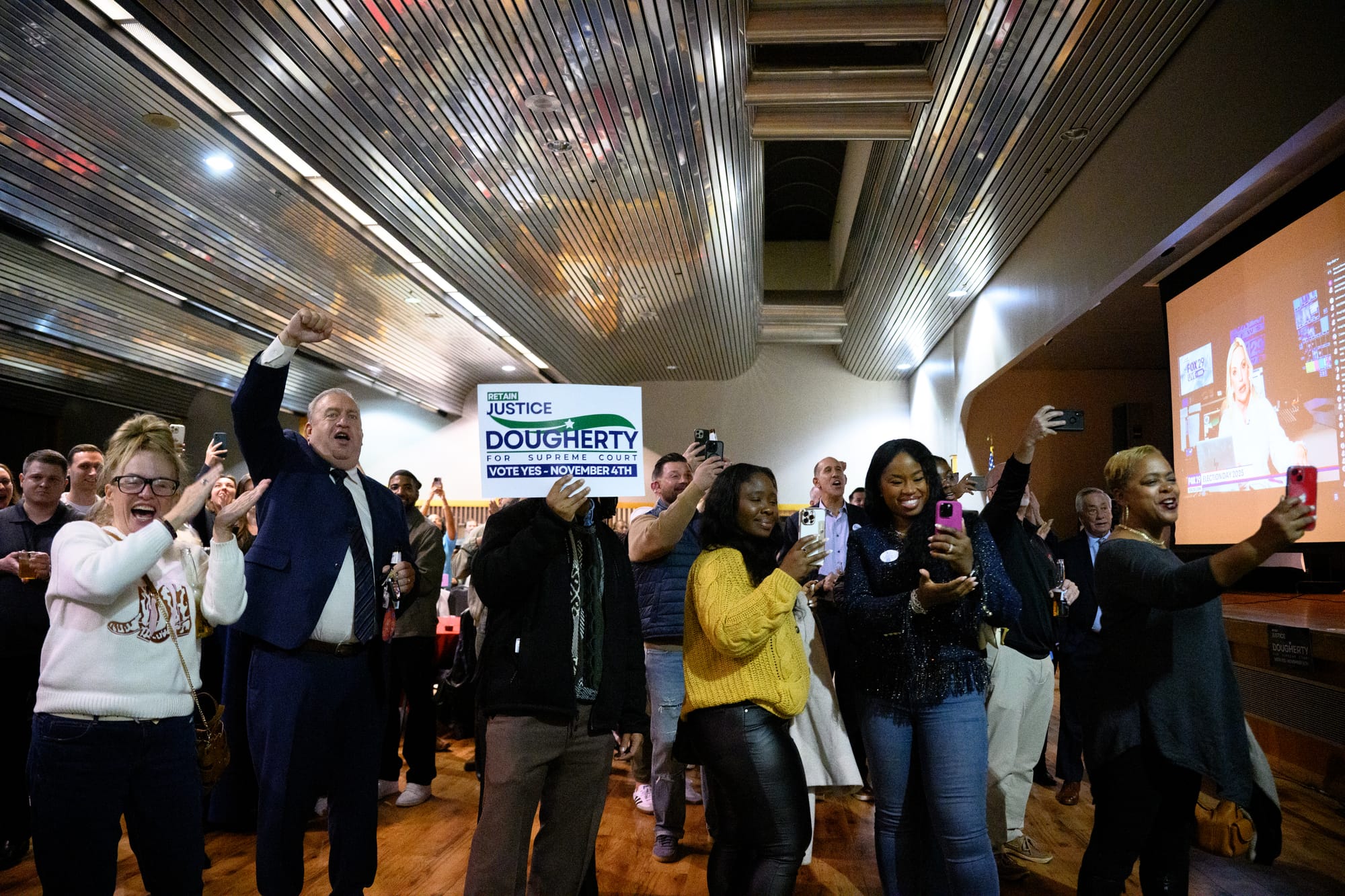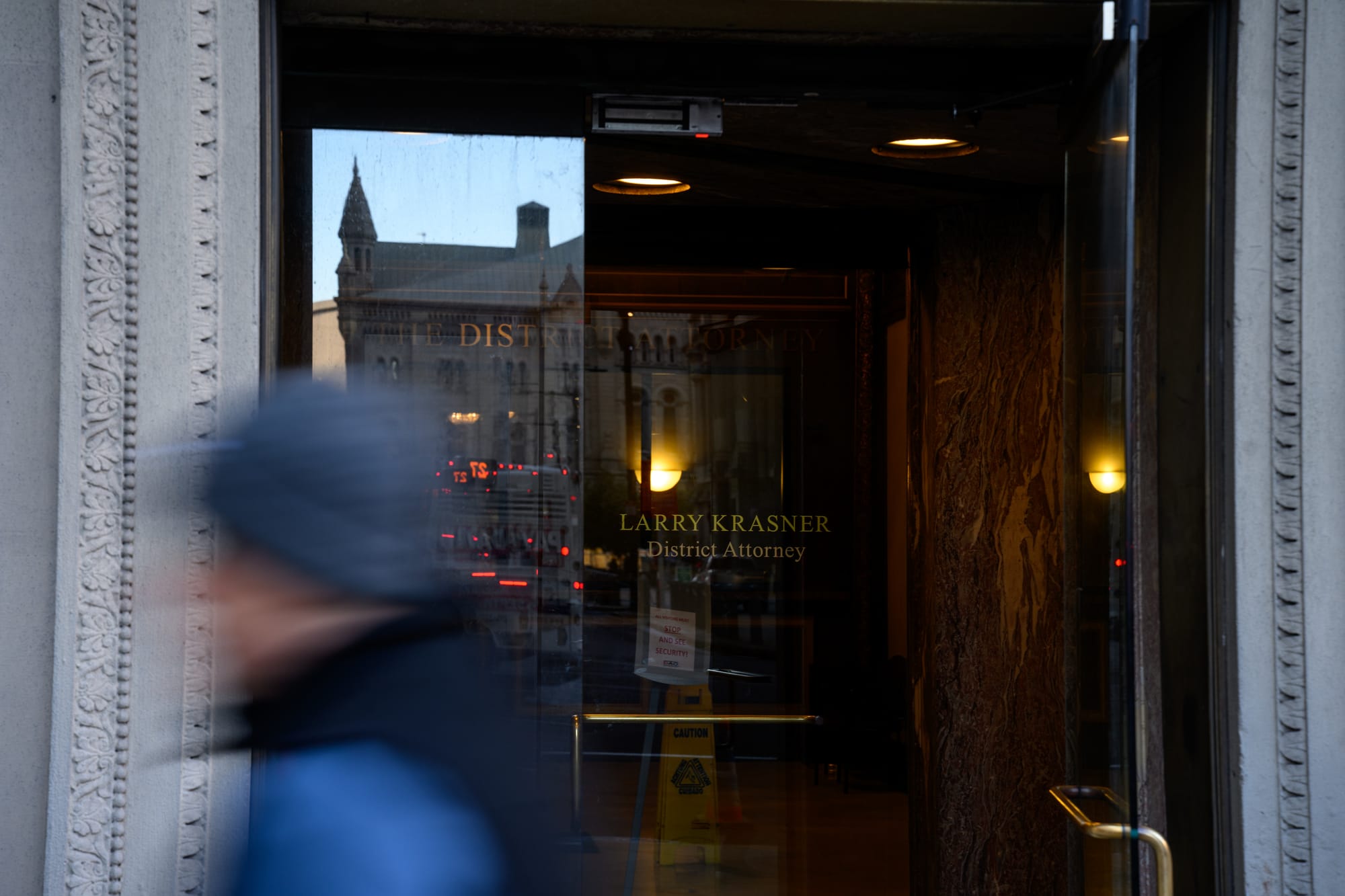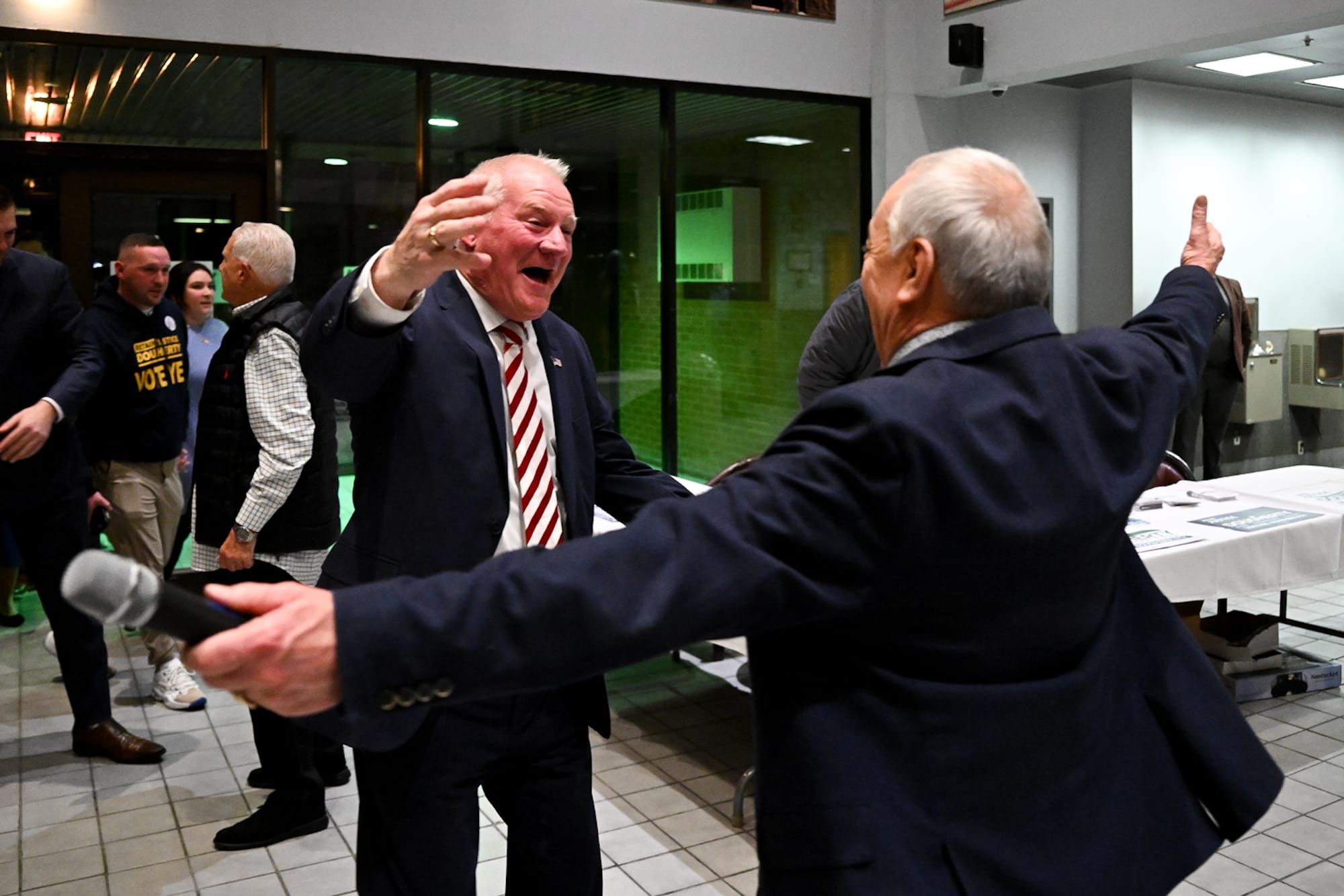Black Philadelphians on Voting Today
Amid disillusionment and hope, Black Philadelphians share what voting means to them in 2025 — where pride, frustration, and persistence meet in the booth.
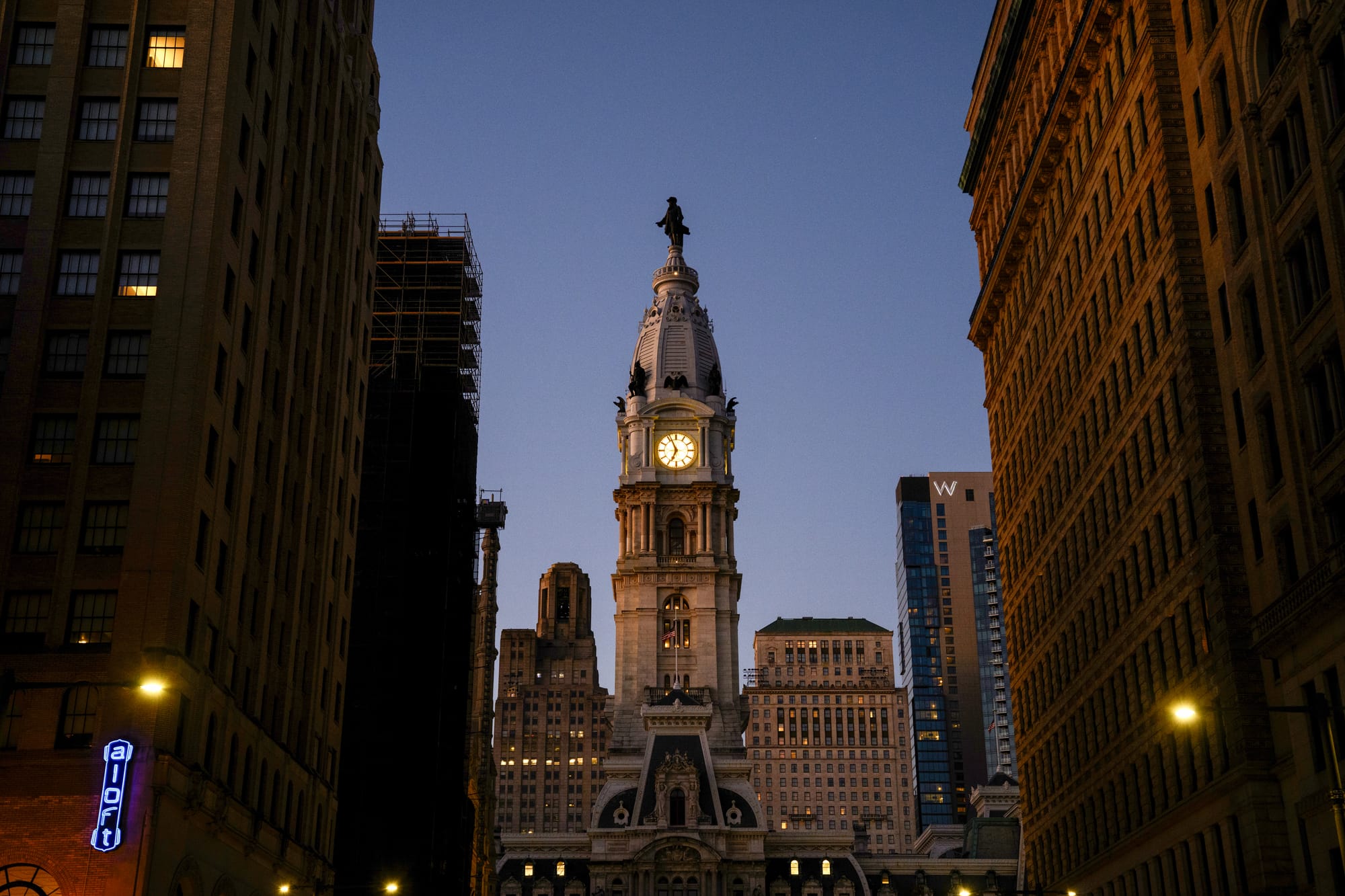
Philadelphia’s Black communities have always been at the heart of this city’s political story, from the struggle for civil rights to the ongoing fight for equity today. But what does voting mean in 2025, when disillusionment runs deep and trust in politics feels fragile?
For this voter guide, the Philly Download spoke with Black Philadelphians between the ages of 18 and 45 about their relationship to the ballot box. Their answers were personal, layered, and unapologetically honest.
What we heard was both a reflection on history and a vision for the future: Stories of grandparents who marched, parents who insisted, and communities that carry voting as an inheritance. But also frustration with empty promises, slow-moving change, and the ways politics can feel like it overlooks everyday life.
Still, across every conversation ran a thread of persistence; a refusal to disengage, even when the system disappoints. For these voices, voting is not the whole story, but it is still a vital tool. And as one of them puts it best: “Get your Black ass off the fence and come vote.”
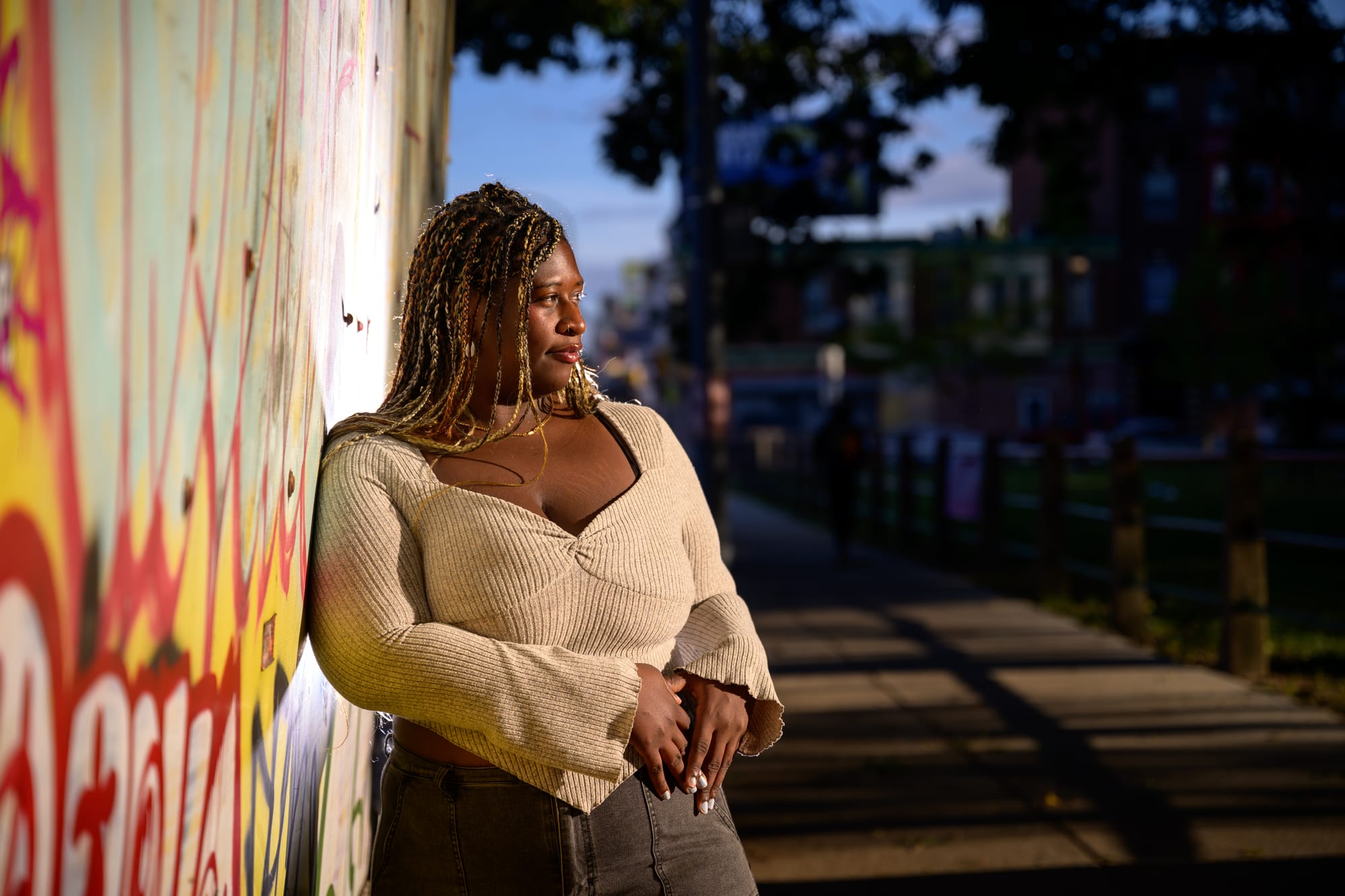
Saudia Durrant
Age: 33
Profession: Senior Campaign Associate at The Advancement Project
Neighborhood: Northwest Philly
“I think Black folks, their relationship with political systems has been very transactional, maybe even more so extractive. Where people feel like they engage in politics, they give something away, but they never get anything in return.
I think folks often feel like ... one: ‘voting in elections doesn't change anything.’ I think the second reaction I often see is, ‘Folks in politics? They're too academic.’
I think for a lot of people it feels unattainable to be able to fully understand, ‘Okay, when you say vote for this person on the Supreme Court, what does that materially mean?’ Because who are these people? You actually break it down. Don't just tell me, you know, where this person went to college. Can you actually explain to me how they think about Black people and the interests of Black people? How will they affect my direct day-to-day, nine-to-five life? I feel like a lot of organizations and communities have struggled, not just in Philly, but nationally, to convince people to vote, and to convince them that voting will have a direct material impact on their lives. It'll help them to have more money. It'll help them afford their rent. It'll help them have a better experience in education.”
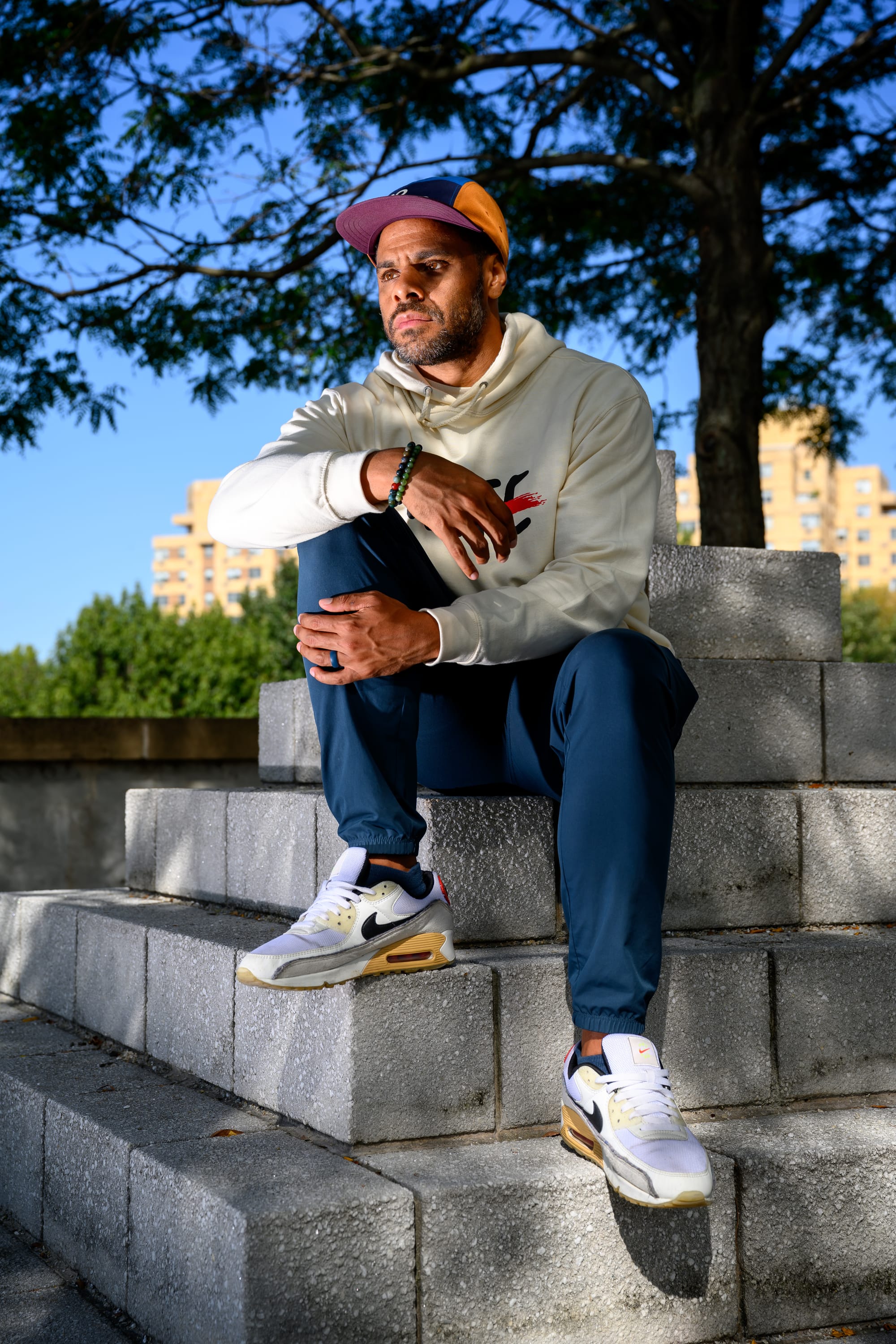
Kellan White
Age: 39
Profession: Political consultant
Neighborhood: Brewerytown
“The problem broadly facing people is, what is the messaging that actually resonates with Black voters in a real way to motivate them? And I think we get caught in the trap where it might motivate some Black voters of certain socioeconomic or educational achievement, but you're not getting to the voters who are the majority of the African American voters in Philadelphia, who might not care about that stuff, right?
It works for my grandma to say, ‘Your grandchildren and great-grandchildren shouldn't have less rights than you did.’ That is a fact. It does not work for the 19-year-old who lives on Montgomery and 25th to talk about choice or rights, because they might not feel like they have many.
And so you're sort of stuck in this loop. And I wish I could tell you, ‘Well, all we have to do is this.’ In 2024, we tried everything in Philadelphia. Like everything. It just didn't move voters. We knocked doors, we brought in celebrities, we did commercials, we did everything right, and it just didn't motivate people, right? And in part, because I think the majority of people I know now have turned off politics.
Let me remove the people from the industry, the people who are sickos. [laughs] Everyone else is like, ‘I don't really read the news anymore, it's all so depressing.’ That gets worse in areas where they're dealing with more economic challenges; that's always been the case.
So we're what? Six weeks out, five weeks out, right? We need to, in five weeks, en masse, get people to understand you have to vote. And I'm not sure what the argument is, other than validators who people trust saying it, right? And I don't know who those validators are anymore, because trust in our elected officials is at an all-time low.”
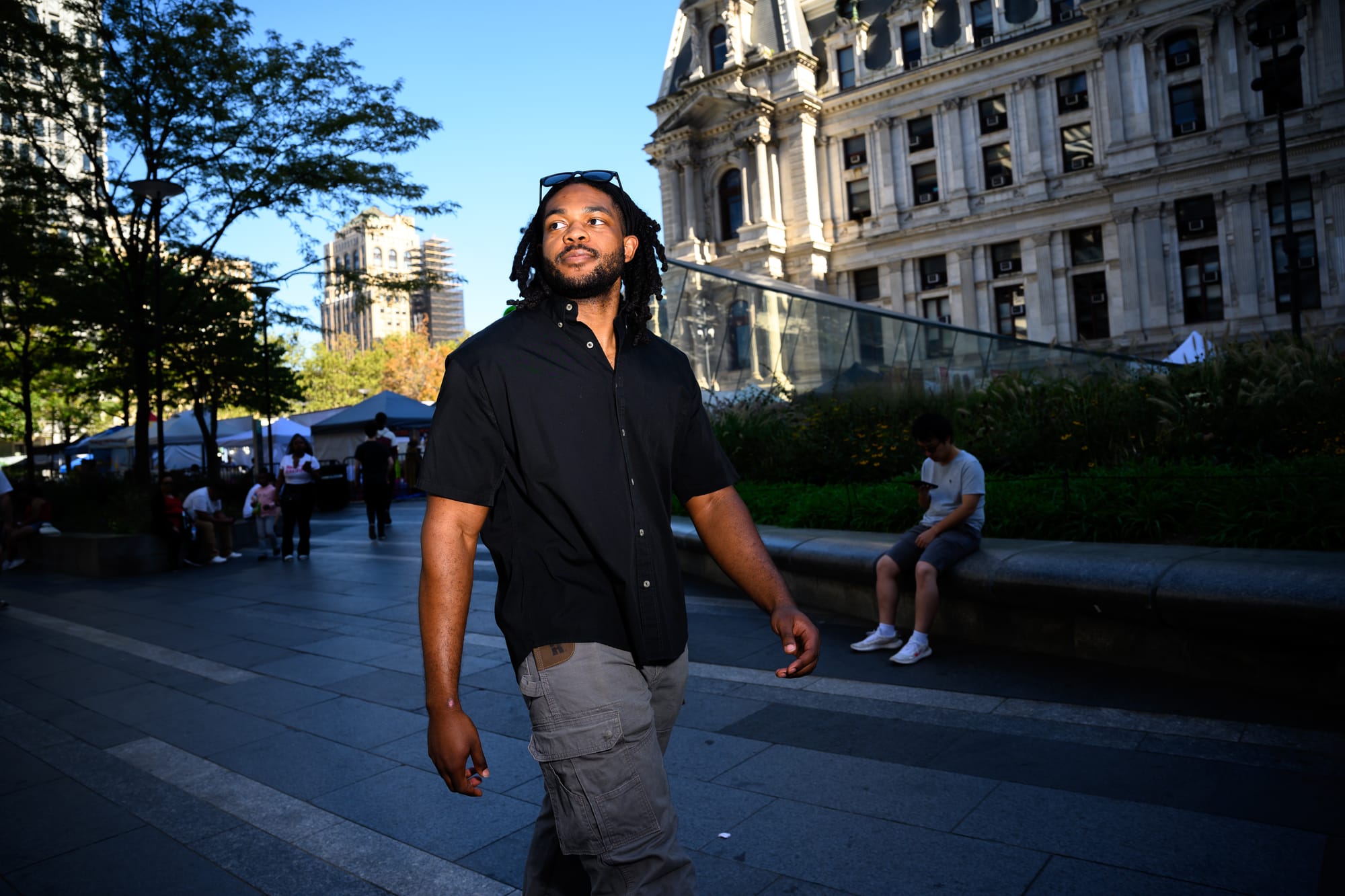
James Gray
Age: 23
Profession: Policy coordinator
Neighborhood: West Philly
“Yeah, to make the case what I do now is just talk about the actual impacts the Supreme Court has had on poorer labor here in Philadelphia, not only Philadelphia, but Pennsylvania at large.
There’s this one particular case that they decided in 2021, where they decided that companies like Amazon, or any employer that demands that you do some type of required training, compensate you for your time taking that training.
So there was one warehouse here in Pennsylvania that was keeping their delivery drivers and warehouse workers after the designated shifts. Imagine you get off at five, you get off at eight, and they're keeping you down for another hour or two hours to make sure you go through this readiness training and security training. You're now technically off the clock, and they're not paying you for that hour, two hours that they're making you stay. One, that's just a violation of labor law, basically forcing you to work with the threat of termination if you're not doing this training. But even further, making you stay past your designated work hours for no compensation at all is insane, and that's something that the Supreme Court recognized was insane.
Another big decision back in 2018, was that they decided that at-home care workers can have their information sent out to unions who are interested in trying to organize them and actually develop some type of worker protections for them.”
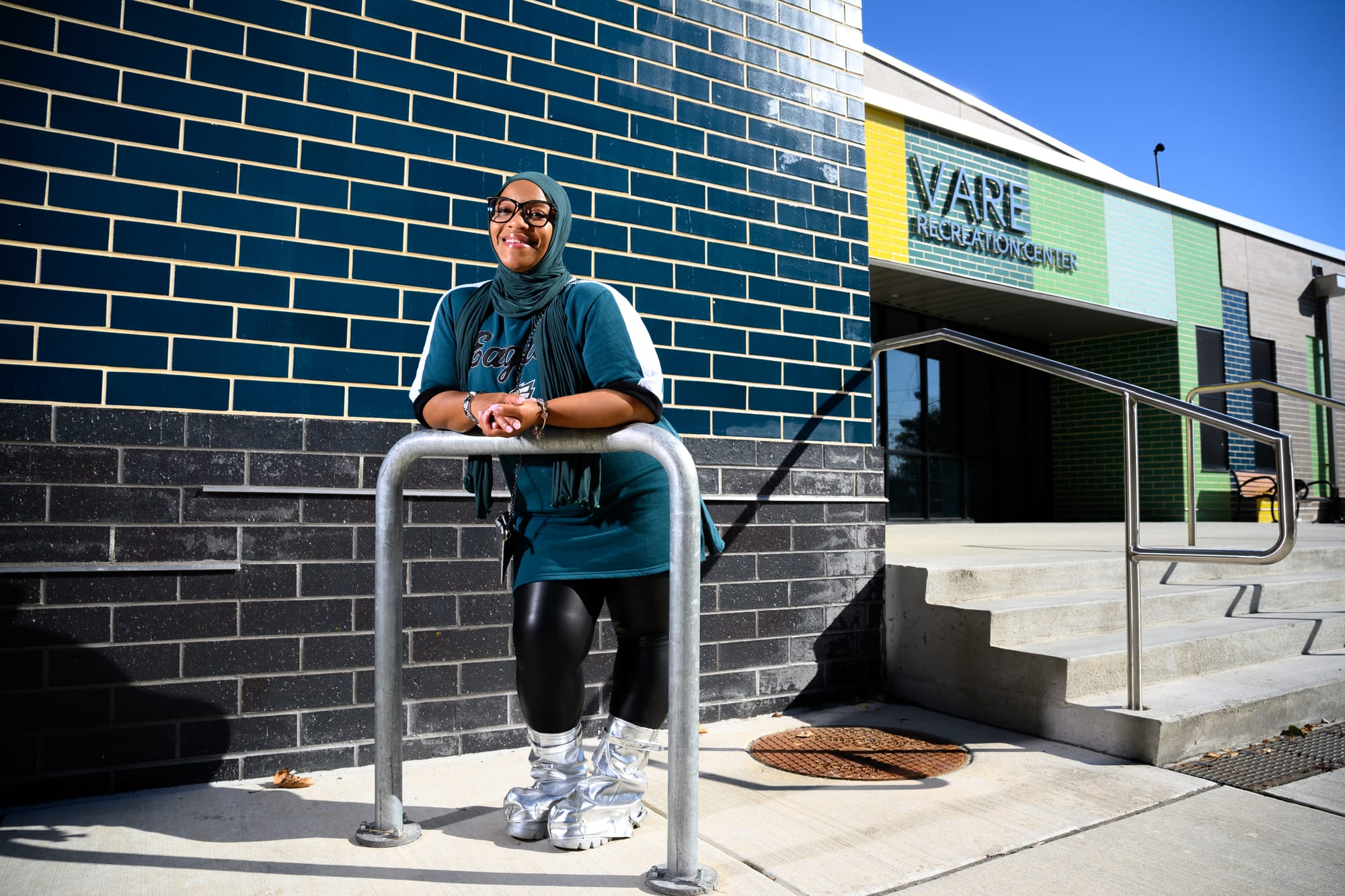
Yasmeen Abbott
Age: 40
Profession: School administrator + Recreation Advisory Council Leader at Vare Rec. Center
Neighborhood: South Philly
“As a school administrator, as a parent, as an advocate, as a Philadelphian, and as a civilian, on a regular basis, I try to make sure that my students and my family members understand how important voting is. Even if you feel as though voting is not important to you, or it's not going to have an impact on you, think about the impact that you not voting has on those who voting ‘actually matters’ for. I try to make sure that they understand that the life we live is not our own. We're all responsible for how our country is run and how it operates, and so it's our civic duty to show up in whatever capacity that is. And if you are at the age where the only thing that you can do is vote, then go ahead out and vote.
I'm never going to tell you who to vote for, but I am going to say, ensure that it's in your interest. Ensure that you're going to be content with what that vote looks like for you, your parents, your grandparents, and your grandchildren. And so when you're thinking about voting, those are the things that you want to think about: generations to come, generations that have already gone. And it's just a constant conversation. If we want something to happen, we have to normalize it. So having a constant conversation with everyone about, ‘Hey, these local elections matter.’
And so I tell people all the time, if you're going to ignore something, and if you don't want a seat at the table, then continue to not vote. If you're fine with all of your life, something being chosen for you, then don't vote.”

Jullian Baez
Age: 35
Profession: Clinical Social Worker, Educator, Meditation Teacher
Neighborhood: North Philadelphia
“My grandmother was part of the Civil Rights Movement, so voting was always present in my family. My first vote was in 2008 for Barack Obama, and that moment felt like a collective step forward.
But I get why people in our community feel disconnected. There’s a lack of trust because politicians make promises and rarely deliver. That disappointment makes people disengage. Still, I see daily how voting shapes real life. Whether it’s underfunded schools or city workers fighting for fair wages, these things are connected to policy.
To me, true political power is mobilization; people coming together, paying attention, and holding leaders accountable. It’s also about representation at all levels, from nonprofits to elected officials. And it’s about building wealth, expanding access to education, and creating opportunities for our young people.
When I talk with people who feel like their vote doesn’t matter, I try not to lecture. I listen first, because everyone’s frustration is valid. But I also remind them: our grandparents and great-grandparents literally fought for this right not too long ago. They endured attacks, arrests, and worse, just so we could cast a ballot. We can’t take that for granted. Your voice, your vote, really does matter.”
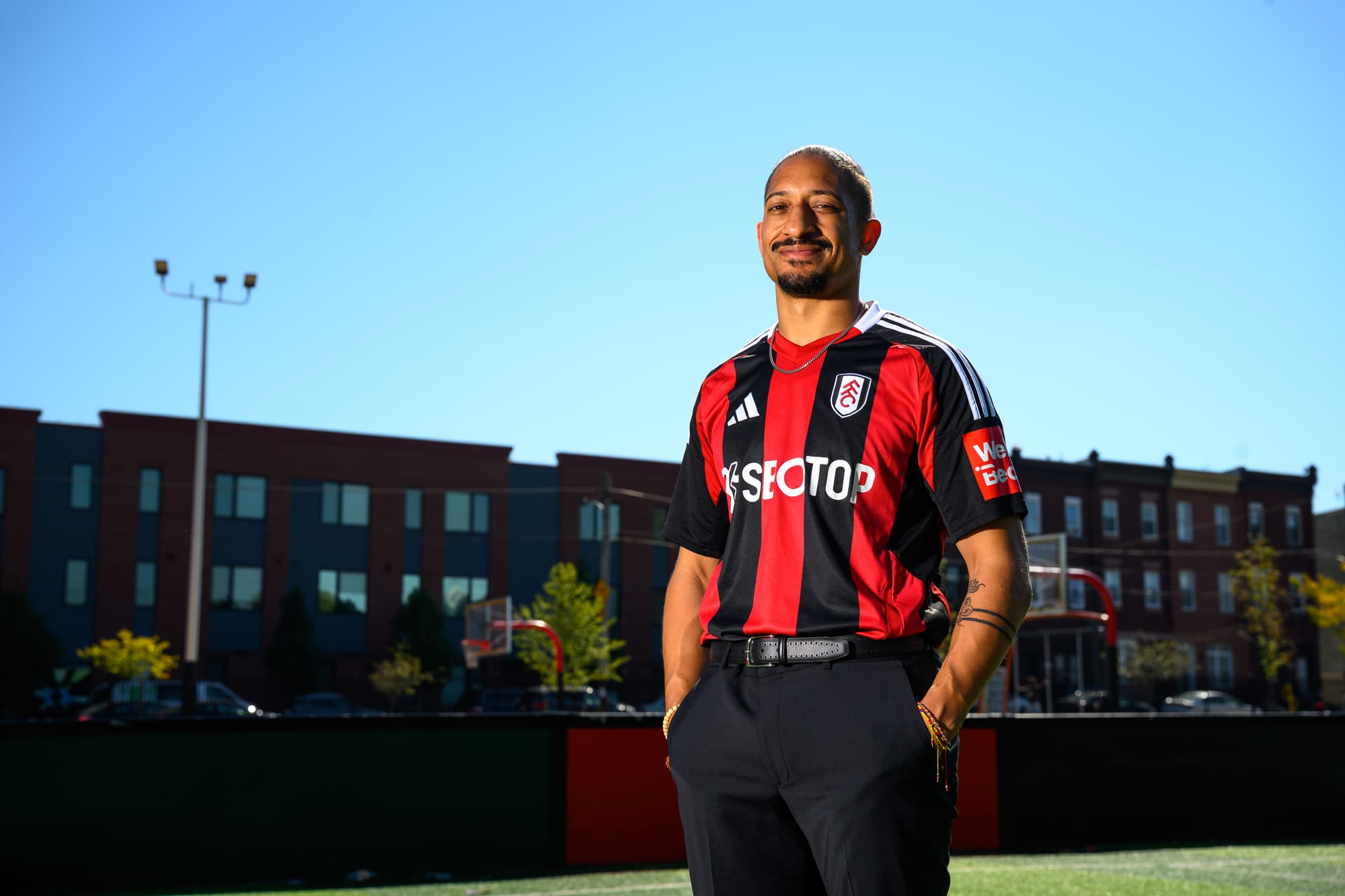
Cameron Robinson
Age: 34
Profession: Marketing Communications Contractor, Street Soccer USA
Neighborhood: Kensington
“My mother and aunts were Black Panthers. They ran registration tables and worked polling places, so I learned early that awareness and participation are survival. My first presidential vote was for Barack Obama, and I was proud of that, but I skipped the local primaries. That mistake taught me that local elections are just as critical as the big ones.
I think the legacy of Black voting is powerful but fragile. Elders fought hard for it, and while we appreciate that, many today feel like voting doesn’t bring change. I understand that feeling. But I still vote consistently, because I know progress doesn’t happen overnight.
For me, voting matters because policies, even if slow, shape our lives. I tell people to do a character check on candidates: don’t just believe the campaign talk, look at their actions.
What keeps me engaged is hope. If we stop fighting, if we stop showing up, it only delays the change we’re fighting for. True political power looks like collective action, the kind of power we saw with Black Wall Street or the way Dr. King fought for the working class.
To younger people I say, don’t wait for perfect conditions. Why not vote? Even if the system frustrates you, voting is one tool we have to make ourselves heard.”
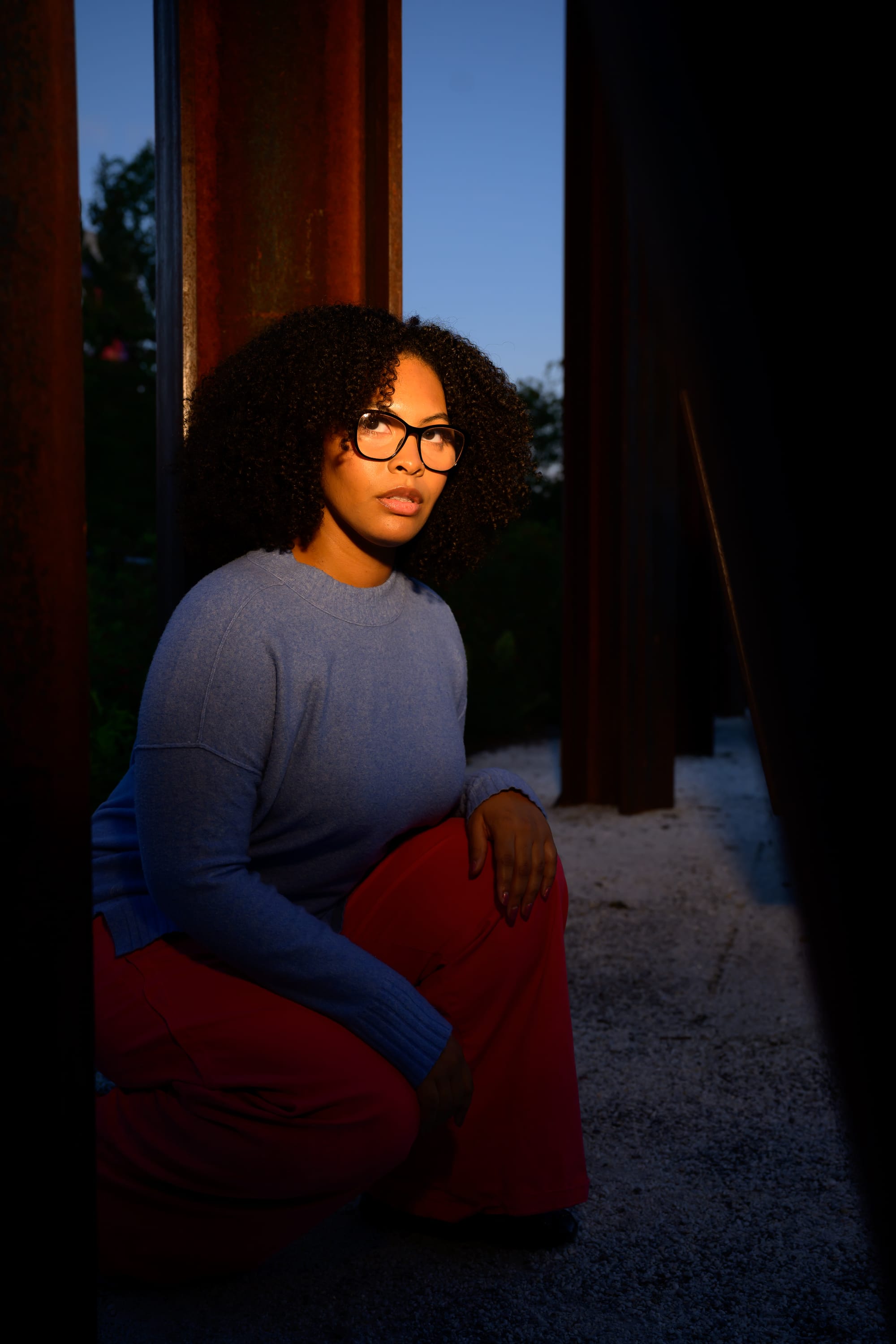
Frances Almodovar
Age: 28
Profession: Communications Professional, Aspen Institute
Neighborhood: South Philadelphia
“My dad was in the military, so voting was always framed as a duty in our household. I remember him saying, ‘You’re 18 now, you can vote,’ and I cast my first ballot for Obama’s second term. It felt like a rite of passage, a moment where I was officially stepping into adulthood.
But voting hasn’t always felt welcoming. I’ve had moments where poll workers treated me with suspicion, and only later did I realize how racial bias played into those experiences. That left me feeling anxious about voting, but I never walked away from it.
What keeps me going is community. I feel responsible to stay informed and share information, because access is everything. A lot of people don’t know where to get reliable information about candidates or ballot measures, and that keeps them from engaging. Political power, to me, looks like changing how we share resources so people don’t feel shut out.
When I think about the impact of the Black vote, I think about issues of care: better maternity care, workplace protections, housing, and immigrant rights. Those are the things I want to see at the center of political conversations.
To young people, my message is simple: your voice matters, even if you don’t feel like an expert. You don’t have to have all the answers. Just showing up, asking questions, and casting your vote makes us all stronger.”
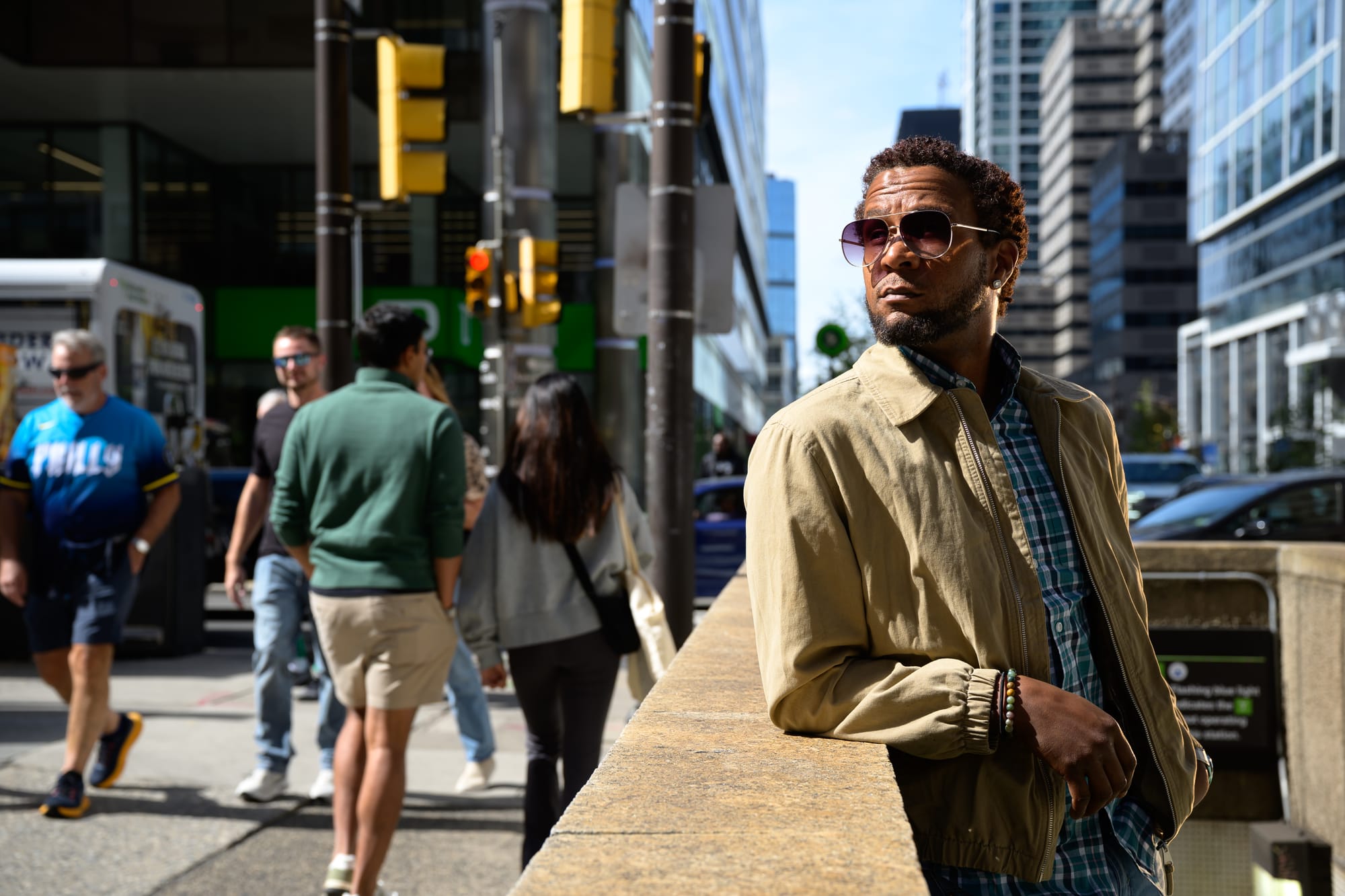
Jaiye Bailey
Age: 40
Profession: Public Servant
Neighborhood: West Philadelphia
“I didn’t feel politically engaged until Obama’s campaign. Social media made politics feel more immediate, giving me access to people like AOC, Jasmine Crockett, and even Meghan McCain back in the day.
When I think about the legacy of Black voting, I think of people like Frederick Douglass, Bayard Rustin, James Baldwin, Sojourner Truth, Shirley Chisholm, and W.E.B. Du Bois. Their sacrifices gave me freedoms and protections I benefit from today.
What keeps me engaged is the way politics and morality have become intertwined. It’s not just about parties anymore; it’s about values. And when people come for my Black ass or my gay ass, I have to pay attention.
True political power looks like engagement. You can’t get away with anything if your community is paying attention, asking questions, and holding people accountable. That’s when things start to shift, when schools get better, neighborhoods get safer, and people feel protected.
So when I hear people say they’re undecided about voting? My response is blunt: get your Black ass off the fence and come vote. Like, what are you even talking about?”
